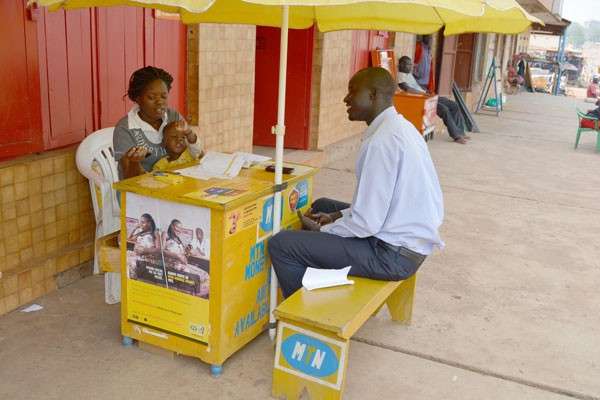Mobile money transactions in Ghana continues to show substantial growth.
According to data from the Bank of Ghana, mobile money transactions hit a record-breaking GH¢2.368 trillion during the first 10 months of 2024. This represents a marked increase from the GH¢1.367 trillion recorded in the same period last year, demonstrating the significant momentum behind this digital financial service.
The rise in mobile money transactions has been steady and impressive. In the first eight months of 2024, the value of transactions already reached GH¢1.775 trillion, highlighting the sector’s robust expansion. This leap can be attributed to the increased adoption of mobile financial services as well as the growing trust and convenience these platforms offer to users. The figures indicate that mobile money is not just a passing trend but an integral part of Ghana’s financial ecosystem, enhancing accessibility for millions.
Month-by-Month Analysis
A closer look at the monthly transaction data for 2024 provides more insight into this growth. In January 2024, the value stood at GH¢198.4 billion, showing an increase from GH¢130.1 billion in January 2023. However, February saw a slight dip to GH¢195.8 billion, followed by another small decrease in March to GH¢181.9 billion. This was typical of seasonal trends seen in many financial sectors.
April marked a return to growth with transactions reaching GH¢203.0 billion. The trend continued upward, with May registering GH¢243.4 billion. June experienced a minor decline to GH¢224.0 billion but was followed by a consistent rise through the second half of the year. By July, the value surged to GH¢264.9 billion and hit GH¢273.6 billion in August. September saw a slight dip to GH¢157 billion before bouncing back in October with a record GH¢179.2 billion.
The data indicates a promising opportunity for enhancing financial inclusion in Ghana. Mobile money has proven to be a powerful tool for bridging the gap between the unbanked population and formal financial services. With the total value of transactions reaching such unprecedented levels, it is evident that digital finance has become a crucial part of everyday life for many Ghanaians.
The registered number of mobile money accounts as of October 2024 stood at 71.9 million, with active accounts estimated at 23.3 million. These numbers highlight the widespread adoption of mobile money and the role it plays in supporting both personal and business financial needs.
The growing volume of transactions also suggests that there is significant room to expand the range of financial products offered through mobile platforms, such as microloans, insurance, and savings schemes. The potential for financial service providers to leverage this upward trend to introduce more inclusive financial products is vast. This could lead to improved economic stability and increased access to financial resources for individuals in rural and underserved areas.
A Missed Revenue Opportunity?
Despite the notable growth, there is an intriguing question about why Ghana is not seeing a commensurate rise in revenue from the Electronic Transaction Levy (E-levy). The E-levy, introduced to generate more tax revenue from the rapidly growing mobile money market, has not been as lucrative as anticipated. This raises concerns about the effectiveness of the current E-levy framework and whether adjustments are needed to capture the potential revenue from this booming sector.
While mobile money transactions have soared, the levy’s performance suggests that either the tax rate is not optimized or that the policy needs reevaluation to capture a fair share of these digital transactions. Ensuring that mobile money transactions contribute adequately to national revenue while still fostering growth and financial inclusion is a delicate balancing act for policymakers.
For Ghana to fully leverage the potential of mobile money, the focus must be on refining policies and fostering innovation. The significant growth in mobile money usage is a testament to the increasing digitalization of financial transactions, yet it calls for a strategic approach that aligns revenue generation with continued sector development. Adjustments to the E-levy could be one solution, ensuring that it does not stifle innovation while allowing the government to benefit from the digital economy.
The growth trend in mobile money transactions also serves as an opportunity for financial institutions to collaborate more closely with mobile network operators and tech companies. This could lead to better, more comprehensive financial products that meet the needs of the populace and promote further financial inclusion.
READ ALSO: BoG’s Decision to Freeze Policy Rate Opens a Window of Opportunity for the Equity Markets- Analyst




















